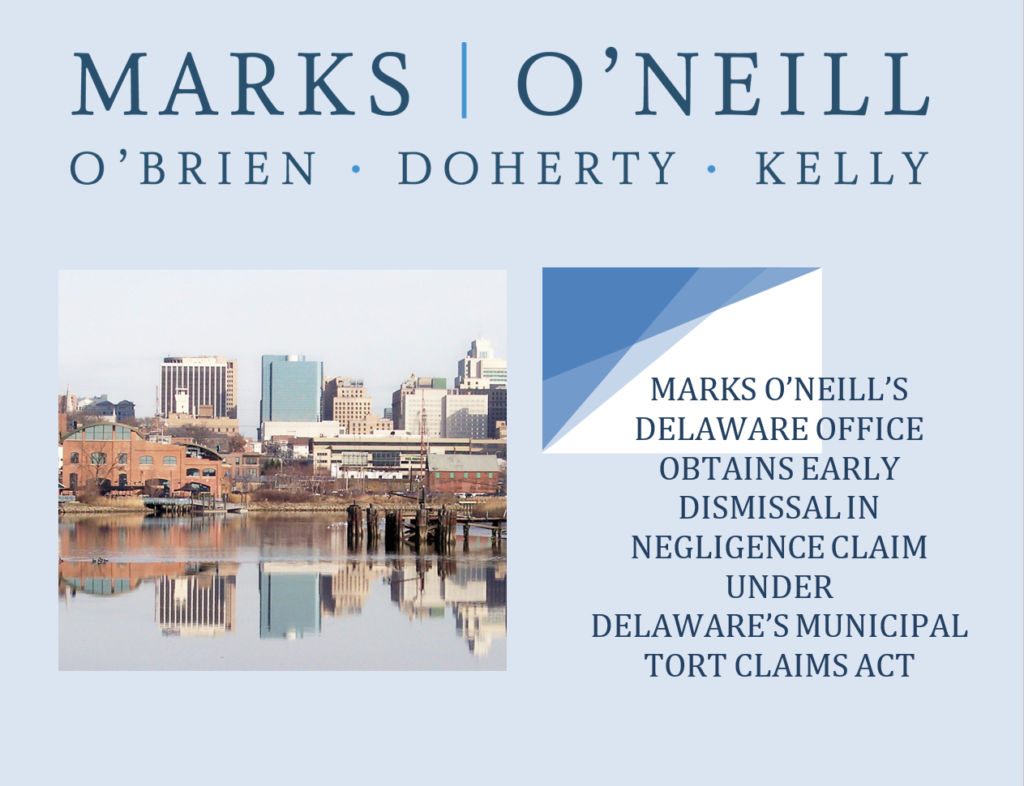
Dawn C. Doherty and Brett T. Norton of MOODK’s Delaware office obtained dismissal of all charges against a medical provider and their staff. Plaintiff initiated an action in the U.S. District Court for the District of Delaware alleging medical negligence on behalf of their deceased parent who passed away due to complications from COVID-19. Plaintiff asserted that Defendants, who were all medical providers within the state of Delaware, caused decedent’s death because a member of their nursing staff allegedly contracted the virus and did not wear a mask while treating decedent, thereby causing decedent to contract COVID-19, ultimately causing her death.
A District Court will have jurisdiction if the action involves two citizens of different states and the controversy exceeds $75,000.00. Here, Plaintiff asserted complete diversity as she was a resident of Georgia and all Defendants were citizens of Delaware. However, because survivorship claims require the Plaintiff to assume the citizenship of the decedent, the Court did not have jurisdiction over the matter because decedent was also a citizen of Delaware.

